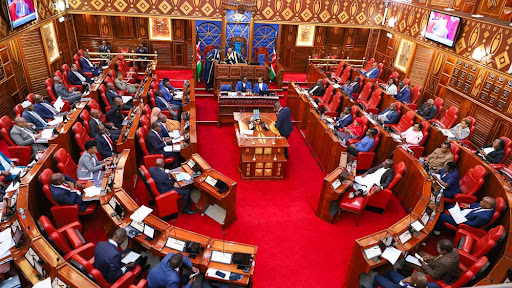The Public Accounts Committee’s recent decision to clear the audit queries surrounding the stalled Arror, Kimwarer, and Itare dams has sparked further debate, raising concerns over the handling of public funds.
Despite warnings from the Auditor General about the legitimacy of the loans tied to the projects, the parliamentary committee has accepted the explanation given by Treasury officials.
The official response failed to calm rising concerns over the possibility that taxpayers could lose up to Sh30 billion in loans for dams that remain unfinished.
The PAC’s approval came after Treasury Principal Secretary Chris Kiptoo explained that the government resumed payments for the dams after Cabinet’s approval in April 2024.
The renegotiated loans, initially flagged by Auditor General Nancy Gathungu, were signed under new terms in June 2024, requiring Kenya to pay more than Sh30 billion for three dams that have made little to no progress.
"The committee has noted the submission by the accounting officer and found the matter was resolved," the report reads, signaling the conclusion of the audit query at the parliamentary level.
However, the Auditor General remains unconvinced, stressing that her office could not verify the details of the restructuring agreements, as necessary documents were withheld.
Gathungu’s office pointed out that it was impossible to confirm whether Kenya is getting value for money or if the terms were truly restructured lawfully.
"Although the debt restructuring agreements were signed, the authenticity of the outstanding balance after restructuring and value for money for the projects of Sh31,475,529,447 could not be confirmed," Gathungu’s report says.
Initially, the projects were set to cost Sh62 billion, but after the contract cancellations, new agreements with commercial lenders raised the price tag.
Kenya is now committed to paying billions of shillings for dams that were either abandoned or never constructed in the first place.
The Itare dam project in Nakuru County came to a standstill after only 25 percent of the work was completed.
No work has been carried out at the sites of Arror and Kimwarer, even though funds have already been disbursed to the contractors.
Former Public Service Cabinet Secretary Justin Muturi recently revealed that he had opposed the dam deals when he served as Attorney General, citing concerns over the mounting costs of the projects.
Muturi refused to sign the agreements, stating, "I couldn’t append my signature as Attorney General. I have a paper trail on these, in soft copy."
Despite his objections, the deals continued, and his resistance was reportedly a factor in his falling out with President William Ruto, as noted by Deputy President Rigathi Gachagua.
In another blow to public trust, legal proceedings against individuals implicated in the scandal have collapsed, with all accused persons acquitted as of December 2023.
Investigations by the Directorate of Criminal Investigations have also gone cold, leaving many unanswered questions about how such a large amount of public money was mismanaged.
Kiptoo, in his submission to PAC, insisted that the government and the Italian lender had agreed on a financial settlement for the dams, but the deal still raises suspicions.
The negotiated settlement of over Sh30 billion does not guarantee that any work will be done on the dams.
Experts have repeatedly criticized the feasibility of these projects, with many questioning the suitability of the Kimwarer dam site.
As it stands, Kenyans have paid billions for unfinished projects, and it’s uncertain whether the dams will ever be completed.
Despite the concerns raised by Gathungu, the PAC has effectively concluded its investigation, and the final decision on the matter will now rest with Parliament when the report is debated.
Meanwhile, President Ruto’s meetings with Italian Prime Minister Giorgia Meloni in January 2024 raised hopes that the projects would be revived.
Yet, over a year later, there is little to no progress to show for the millions of dollars spent.

